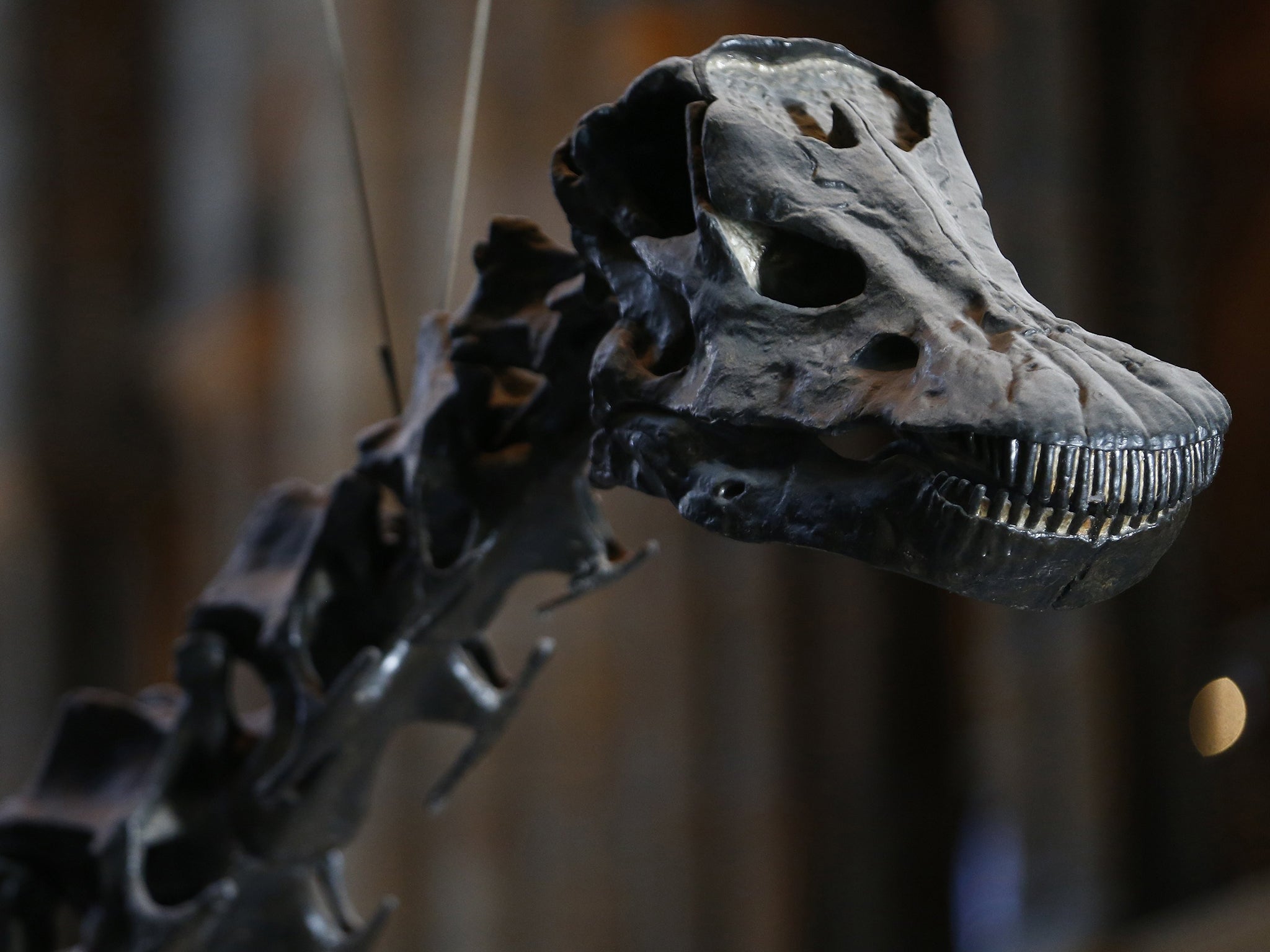Dippy the diplodocus: How do you pronounce the dinosaur's name as he leaves the Natural History Museum in London?
The well-loved tourist attraction is off on his travels, but the question of how to pronounce his name has proved divisive

Your support helps us to tell the story
From reproductive rights to climate change to Big Tech, The Independent is on the ground when the story is developing. Whether it's investigating the financials of Elon Musk's pro-Trump PAC or producing our latest documentary, 'The A Word', which shines a light on the American women fighting for reproductive rights, we know how important it is to parse out the facts from the messaging.
At such a critical moment in US history, we need reporters on the ground. Your donation allows us to keep sending journalists to speak to both sides of the story.
The Independent is trusted by Americans across the entire political spectrum. And unlike many other quality news outlets, we choose not to lock Americans out of our reporting and analysis with paywalls. We believe quality journalism should be available to everyone, paid for by those who can afford it.
Your support makes all the difference.It’s Dippy the dinosaur’s last day dominating the entrance hall of the Natural History Museum before he goes on tour, and his departure has thrown up an age-old question – how do you pronounce "diplodocus"?
While not quite as divisive as, say, Brexit, palaeontologists and other experts just can’t agree on whether it should be pronounced di-PLOD-ocus or diplo-DO-cus.
According to the museum’s resident dinosaur expert, di-PLOD-ocus is the preferred pronunciation of most palaeontologists, whereas most schoolchildren are taught to say diplo-DO-cus.
Professor Paul Upchurch told the BBC: “If I stand up on a stage and say it at a conference, it’s the way of saying it that’s going to seem the least weird.”
He said it is correct to put the stress on the second syllable because the first diplodocus remains were discovered in 1878 in Colorado by an American palaeontologist, Othniel Charles Marsh, and that’s how the Americans say it.
Of course, the idea that we should blithely do whatever the Americans do is is a contentious one – and the Oxford English Dictionary says that both pronunciations are acceptable.
According to current conventions of English pronunciation, it might strictly speaking be correct to say "diplo-DO-cus" based on the traditional pronunciation of its composite words. The dinosaur name comes from the Greek words - diplos (double) and dokos (beam), which refers to the formation of bones on the underside of its tail.
The poem, I’m a Diplodocus, by Judith Nicholls, also placed the stress on the first and third syllables, rhyming the word with “Hocus, Pocus”.
But there may even be a third way, as some experts at the Natural History Museum are apparently plumping for"DIP-low DOCK-us".
The BBC's Pronunciation Unit said it is even aware of a fourth possibility – “digh-PLOD-uh-kuhss” - the “digh” sounding like "high".
Crispin Little, a palaeontology lecturer at Leeds University, said: “Dinosaur names are made up from Latin and Greek, so they're not real old words; it’s up to you how you pronounce them.”
However you pronounce his full name, Dippy has been cleaned and flat packed and will depart the museum’s Hintze Hall on Wednesday evening.
The 85 foot iconic statue – an exact plaster cast copy of the real dinosaur- will begin a UK-wide tour, taking in Scotland, Wales and Northern Ireland as well as five English regions.
It is the first time Dippy, who was affectionately named by the public, has been allowed out of the capital since his arrival in 1905 when he was given to the museum as a gift by the industrialist Andrew Carnegie.
His prime location at the entrance to the museum will be taken by the real skeleton of a 4.4 tonne, 83 foot real female whale, which the museum said it hopes will highlight current conservation concerns.
The whale has been exhibited elsewhere in the museum, but she will have her pose altered so she is suspended from the ceiling in a “dive” when she becomes the star attraction in the summer.
Join our commenting forum
Join thought-provoking conversations, follow other Independent readers and see their replies
Comments